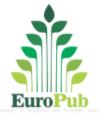PERANAN AGEN PERUBAHAN DALAM PENGENDALIAN PENYAKIT TIDAK MENULAR (PTM) DI KECAMATAN INDIHIANG, KOTA TASIKMALAYA
Abstract
Non-communicable diseases (NCD) death rates in Indonesia have significantly increased in the last twenty years. The government has strategies to control the NCD but not successful. The many controls for the NCD such as hypertension, diabetes, and stroke by health workers are not enough, but it needs full assist from agent of changes as support strength in community. The Government also needs Agent of Change who supports the society to assist the PTM control method. The type of research is operational research. The study was carried out in 4 sub districts Indihiang, Tasikmalaya City. Twenty one agents of changes were selected. Intervention was by triggering agent changes on the NCD control. Quantitative data were collected by questionnaires while qualitative data were by in-depth interviews. Data analysis of knowledge changes that include attitude and behavior was with t test. Results showed that knowledge of the agent of changes increased significantly, (p = 0.00). And after the agents follow the triggering process, there were changes in their behaviors. Their previous negative behaviors that affect high risk of exposure to NCH have been gradually reduced and turned to be positive behaviors to prevent the emergence of NCD such as reducing the number of cigarettes smoked per day. There were also agents of change who quit smoking. Other risky behaviors were also reduced as to reduce the consumption of fried foods and contain excessive fat and coconut foods. Another positive activity that was started by the agent of change after following the trigger was to do physical activity with exercise at least once a week. The agents of changes had do healthy behavior in everyday life. It is expected that healthy behavior of the agents of change could continue and applied by the surrounding community, especially young generation as successor of the nation.
ABSTRAK
Tingkat kematian akibat penyakit tidak menular (PTM) telah meningkat secara signifikan selama dua puluh tahun terakhir di Indonesia. Pemerintah telah melakukan beberapa strategi pengendalian PTM tetapi belum berhasil. Upaya pengendalian PTM seperti hipertensi, diabetes, dan stroke tidak cukup hanya dilakukan oleh profesional kesehatan, namun juga harus mendapat dukungan penuh dari agen perubahan sebagai kekuatan pendorong di masyarakat. Jenis penelitian adalah riset operasional. Penelitian dilakukan di 4 kelurahan Kecamatan Indihiang, Kota Tasikmalaya. Dipilih 21 agen perubahan. Intervensi dengan pemicuan terhadap agen perubahan dalam pengendalian PTM. Pengumpulan data kuantitatif dengan kuesioner sedangkan data kualitatif dengan wawancara mendalam. Analisis data perubahan pengetahuan yang meliputi sikap dan perilaku dengan uji t test. Hasil menunjukkan pengetahuan agen perubahan meningkat secara signifikan, (p = 0,00). Dan setelah agen perubahan mengikuti proses pemicuan, terjadi perubahan perilaku mereka. Perilaku negatif sebelumnya yang berdampak pada tingginya risiko terkena PTM, telah perlahan dikurangi dan berubah menjadi perilaku- perilaku positif untuk mencegah munculnya PTM seperti mengurangi jumlah rokok yang dihisap per hari. Ada juga agen perubahan yang berhenti merokok. Perilaku berisiko lainnya yang juga berkurang adalah mengurangi konsumsi makanan yang digoreng dan mengandung lemak berlebihan juga makanan bersantan. Kegiatan positif lain yang mulai dibangun oleh agen perubahan setelah mengikuti pemicuan adalah melakukan kegiatan fisik dengan latihan minimal seminggu sekali. Agen Perubahan sudah mulai menerapkan perilaku hidup sehat di kehidupan sehari-hari. Diharapkan perilaku sehat dari para agen perubahan dapat terus dilakukan dan diterapkan oleh masyarakat di sekitarnya, khususnya generasi muda sebagai penerus bangsa.


















